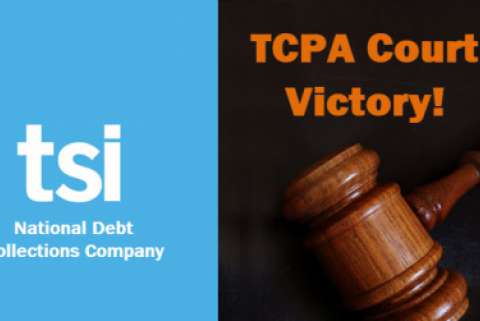Transworld Systems Inc. (TSI) scored another victory in its defense against a TCPA lawsuit that sought to categorize their LiveVox Human Call Initiator devise as an Automated Dialing System (ATDS). The plaintiff claimed that TSI violated the TCPA when they made multiple debt collections calls to his cellphone without his prior expressed consent. The lawsuit hinged on the court’s opinion of whether TSI was in fact using an ATDS. The judge in the the case of Arora v. Transworld Systems granted a summary judgment siding with the defendant.
Background
The plaintiff, Mr. Ashok Arora filed his TCPA lawsuit in June 2016 with the Northern District Court of Illinois. He alleged that TSI violated the TCPA by calling his cellphone using an ATDS and without his prior expressed consent. The lawsuit claims that between August 25, 2014 and November 17, 2014 TSI made 12 such debt collections calls to his cellphone.
TSI describes their debt collections business as an analytics-enabled provider of accounts receivable management and loan servicing solutions. Attorneys for the defense argued that they called Mr. Arora using a web-based dialing program called the LiveVox Human Call Initiator (HCI) which is not an ATDS. They explained that the system is a human controlled and initiated dialing system that requires a person to manually initiate every call.
How the Human Call Initiator Works
- Before a human initiator (or “clicker agent”) begins dialing, they first confirm that each phone number correct.
- Once the number is confirmed, the clicker agent clicks a dialogue box on their computer that launches the dialing of the number. TSI stressed the importance that the call cannot be launched unless the clicker agent clicks on the dialogue box to continue.
- The clicker agent monitors the call’s progress in real-time on a dashboard. Once the call made using the HCI is answered by a live person, it is transferred to a “Closer Agent”.
- The closer agent is the live person designated by TSI to engage the call recipient in conversation.
“The Human Call Initiator is a human initiated and human controlled dialing system that requires a TSI agent to manually initiate every call.”
-- Jonathan Klein, TSI Senior Compliance Manager
Mr. Arora disputed that the Human Call Initiator was used to call his cellphone, but was unable to provide proof to back up his allegations. He appeared to realize the weakness in his case and attempted to argue that the Human Call Initiator is an ATDS. He claimed that his background in software development, along with additional information he had gathered through research, showed that the HCI had the “hidden autodialing potential” to be an ATDS as defined by the TCPA.
TSI’s defense against Mr. Arora’s closing allegations included the introduction of the federal court opinions obtained from pervious TCPA court rulings where the courts sided with TSI. They had all concluded that the HCI was not an ATDS. After review by Judge Kocoras for this lawsuit, he announced his ruling.
“This Court, like the previous Courts who have considered this technology, finds that that Human Call Initiator system does not constitute an autodialer. Because all calls from TSI were made with human intervention, and not with an ATDS, Arora’s TCPA claim fails as a matter of law.”
-- Judge Charles P. Kocoras
The court sided with TSI in ruling that the Human Call Initiator technology is not an autodialer. Therefore the debt collection calls made to Mr. Arora were not a violation of the TCPA. This same conclusion had been reached on similar cases involving TSI in the district courts of Florida, Michigan, and New Jersey.
Conclusion
This lawsuit ended with another victory for TSI. General Counsel, Mark Mallah explained, “LiveVox is very excited that our HCI system has now won 4 out of 4 cases, each one in a different circuit. We think that this provides very strong validation for our approach to TCPA risk mitigation and for point and click technology in general.”
I’d like to say that courts siding with the defendants in TCPA cases like this could signal a trend, but the reality is that rulings favoring the defendant are more of an exception in our current environment. And while it is too early to say what the future holds, it also appears that Mr. Arora may be joining the growing list of serial litigators. In December of 2016, he was part of a court approved TCPA class action settlement against Midland Credit Management for $21.5 million. If Ashok Arora is in your calling data, use extreme caution when contacting him.





